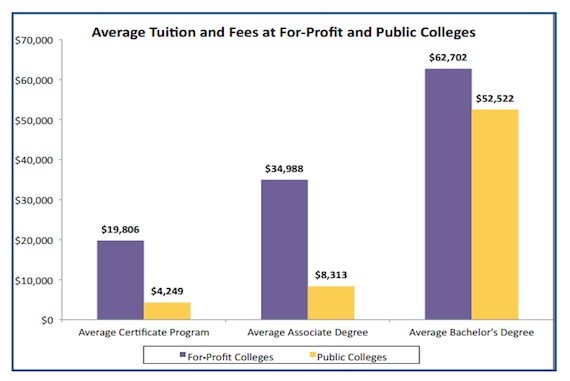I'm not trying to be too dismissive, but this paragraph in the WSJ article causes me to question the point they are trying to push.
While the paper does not measure full hiring outcomes for graduates of for-profit and community colleges, it does track employers’ initial indications of interest in applicants, a loose proxy for individuals’ potential to be hired at some point.
The paper does not measure full hiring outcomes? Initial indications?
I think there is much more to the decision process a student uses to attend a for profit school. I would consider a study valid if it approached an analysis of benefit while taking these variables into account. Available classes, specific areas of learning not offered at community colleges, and a host of other reasons are not addressed. For example, a student may be interested in an I.T. career, but the local community college only offers the class at certain times, or does not have the seat space to accommodate the demand. These are legitimate and real life considerations.
Further, as I mentioned before, there are students who couldn't qualify to enter community colleges due to their basic skills requirements in areas of knowledge that a student may have no interest in. History? A student seeking skills in electrics may have no interest at all in investing time to take such a class.
I do think student loans are far too easy to obtain, whether going to a for profit or not. I think it's a scam, and as I written before, should be eliminated but for specific degrees where there is substantial need.




